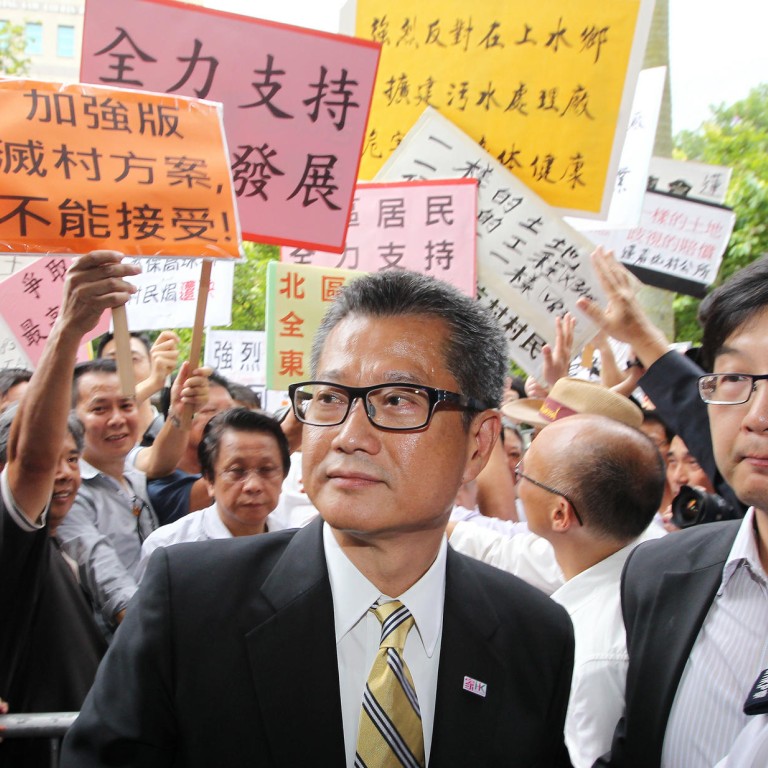
Council urge Paul Chan to relocate ‘squatter’ village
Non-indigenous villagers receive rare backing from indigenous councillors to relocate homes of ‘close-knit neighbourhood’
A rare alliance emerged yesterday between indigenous and non-indigenous villagers in the battle over government plans for two new towns in the northeast New Territories.
A majority of a largely pro-establishment district council urged the government to properly relocate the non-indigenous or "squatter" village of Kwu Tung - the biggest of several villages to be erased by the project - instead of just paying compensation and leaving the residents to their own devices.
I am disappointed that the final blueprint doesn't address Kwu Tung villagers' demand that they can rebuild their village in another site and continue with their rural lifestyle
North District councillors who backed the call at a special meeting attended by Secretary for Development Paul Chan Mo-po yesterday included indigenous inhabitants who seldom speak up for their non-indigenous neighbours.
"I am disappointed that the final blueprint doesn't address Kwu Tung villagers' demand that they can rebuild their village in another site and continue with their rural lifestyle," Hau Kam-lam said.
"They have lived here for decades, some started off rearing pigs and chicken. It is a close-knit neighbourhood," said Hau, a member of the Democratic Alliance for the Betterment and Progress of Hong Kong.
New Territories villagers are considered indigenous only if their settlement existed before 1898. Those living in a village developed after that year are deemed non-indigenous, or squatters, whose occupation of land has been "tolerated". When public projects need land, indigenous villages will be relocated, while squatters will receive cash compensation or flats in high-rise public rental estates.
"If you let Tsoi Yuen Tsuen rebuild their homes, why can't Kwu Tung people do the same?" Hau asked, referring to non-indigenous villagers moved to make way for the cross-border express railway.
At yesterday's meeting 13 of 21 councillors present called on Chan to think of a solution for Kwu Tung village, which has a population of about 6,000.
Keith Au Kwok-kuen, an activist helping the Kwu Tung villagers, said the councillors had seldom been supportive. "I wonder if those politicians are testing the water based on a tip-off from the government. If the proposals are adopted in the end, they can then claim credit."
The meeting came two weeks after Chan unveiled the final plan for the twin-town project at Kwu Tung North and Fanling North, which calls for construction of 60,700 flats to meet medium-term housing needs.
Dozens of villagers protested before the meeting, chanting "no demolition, no removal".
Under the blueprint, each squatter household will get either cash compensation up to HK$600,000, or a public rental home near their original village.
Chan got personal when responding to the councillors.
"I grew up in a squatter area too. We shared a public bathroom full of mess. My home was destroyed by fire. So I understand your feelings."
He said he had visited the affected villagers in private and would arrange another visit in August. He neither promised to relocate the village nor rejected the idea.
Meanwhile, Chan said a separate new town study next year would cover Sha Tau Kok, a border area where development was frozen for security reasons.

